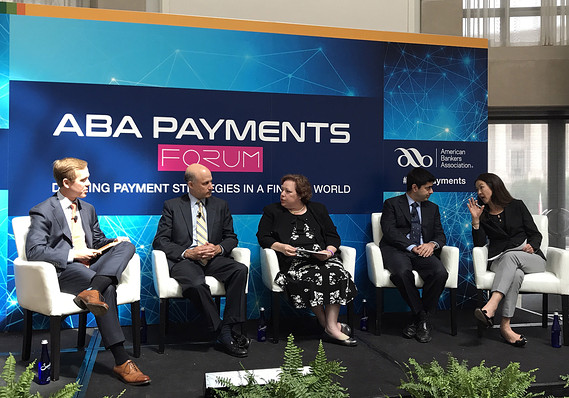WASHINGTON – Banking experts disagree over how best to regulate financial technology to minimize risk while fostering fair competition for banks and fintech businesses.
Kathleen Oldenborg, director of payments systems risk policy at the Office of the Comptroller of the Currency, said chartering fintech companies that provide banking services as national banks will foster innovation and allow fintech companies and banks to compete with each other on a level playing field. It will hold these businesses accountable for the services they offer, she said.
The special purpose national bank charter initiative is part of the OCC’s support for innovation to support evolving financial products and services while minimizing risk, she told an audience at the American Banking Association Payments Forum on Thursday.
But Margaret Liu, senior vice president and deputy general counsel at the Conference of State Bank Supervisors, objected to the OCC’s special purpose national bank charter for fintech companies, saying that chartered banks have a unique, well-developed set of rights and responsibilities. Chartering fintech companies as banks will upend those rights and responsibilities, she warned
“A federal license to do business is the exception, not the rule, in our economy,” Liu said.
The American Banking Association supports OCC’s efforts to hold chartered fintech companies to the same standards as banks, said Rob Morgan, ABA vice president of emerging technologies.
Liu said that issuing special purpose national bank charters for fintech companies would ultimately put smaller companies at a disadvantage. The OCC would seek to charter companies with proven business models, so the charter would primarily be an option for larger companies, influencing the balance of the marketplace.
Consumers would also lose because the element of local accountability that comes with regulation at the state level would be lost, she said.
Fintech companies believe fostering legally clear partnerships with banks is good public policy because it will ultimately benefit consumers, according to Daniel Gorfine, vice president, external affairs and associate general counsel at OnDeck, an online small business lending platform.
“We need to see coherent, harmonized regulatory frameworks that make sense for this economy and the types of platforms that exist today,” Gorfine said.
Oldenborg declined to comment on when the OCC will make a decision on these charters or open the door to applications.


